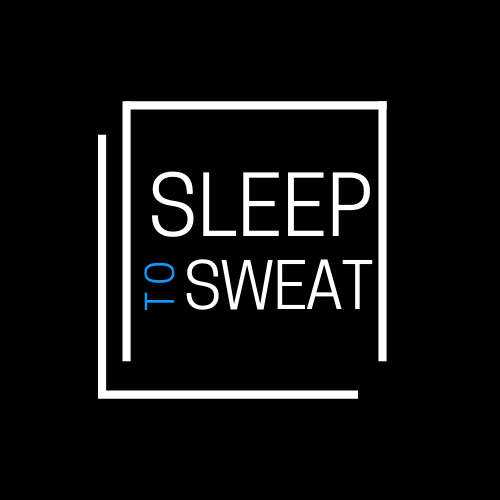Revitalize your body and mind.
dedicated to helping readers achieve their fitness and wellness goals through the power of sleep.


Committed to expertise
Real sleep tips for real people.
At Sleep to Sweat, we understand that fitness and wellness are not just about working out and eating well. They are also about giving your body the time and space it needs to recover and recharge. That's why we focus on the importance of sleep and how it can help our readers achieve their desired results.
Your sleep is our forte.
We believe that quality sleep is the foundation of a healthy and active lifestyle
Healthy sleep, healthy life.

The Science of Sleep: How to Improve Your Sleep Quality
Sleep is often referred to as the cornerstone of good health. It’s when the body repairs itself, the brain consolidates memories, and vital processes like hormone regulation take place. Yet, many people struggle to get quality rest. Understanding the science behind sleep can help you unlock better health, improved focus, and more energy. Here’s how to improve your sleep quality based on what science tells us.
The Stages of Sleep: What Happens When You Sleep?
Sleep occurs in cycles, each lasting about 90 minutes, and includes four stages:
NREM Stage 1: A light sleep stage where you drift between wakefulness and sleep.
NREM Stage 2: Heart rate and breathing slow down, and your body temperature drops.
NREM Stage 3 (Deep Sleep): This is the restorative phase where tissue repair and immune strengthening occur.
REM Sleep: Dreaming happens here. This stage supports learning, memory consolidation, and mood regulation.
Why it matters: For optimal health, you need a balance of deep sleep and REM sleep. Disruptions can affect everything from immune function to cognitive performance.
Common Sleep Disruptors
Blue Light Exposure
Blue light from screens suppresses melatonin, the hormone that regulates sleep.
Solution: Limit screen time an hour before bed or use blue light filters.Stress and Anxiety
Elevated cortisol levels make it harder to fall and stay asleep.
Solution: Practice relaxation techniques like deep breathing or meditation.Irregular Sleep Schedule
Sleeping at inconsistent times confuses your internal clock.
Solution: Stick to a consistent sleep and wake time—even on weekends.Diet and Caffeine
Eating heavy meals or consuming caffeine late in the day can interfere with sleep.
Solution: Avoid caffeine after mid-afternoon and eat lighter dinners.
How to Improve Sleep Quality
Create a Sleep-Conducive Environment
Keep your bedroom cool, quiet, and dark.
Invest in a comfortable mattress and supportive pillows.
Use blackout curtains or an eye mask to block light.
Follow a Bedtime Routine
Signal to your brain that it’s time to wind down with relaxing activities.
Options include reading, taking a warm bath, or listening to soothing music.
Exercise Regularly
Physical activity boosts sleep hormones like melatonin.
Avoid vigorous exercise close to bedtime, as it can have a stimulating effect.
Optimize Your Diet
Include foods rich in magnesium (almonds, spinach) and tryptophan (turkey, bananas).
Limit alcohol and sugary snacks before bed.
Manage Stress
Incorporate mindfulness practices to calm the mind.
Journaling your thoughts can help reduce nighttime anxiety.
The Role of Technology in Sleep
Sleep Trackers
Devices like smartwatches can monitor your sleep patterns, offering insights into how much time you spend in each stage.White Noise Machines
These can mask disruptive sounds and create a calming environment.Smart Lighting
Adjustable lighting systems can simulate sunset and sunrise, aligning with your natural circadian rhythm.
Tip: Use technology mindfully to enhance rather than disrupt your sleep.
How Much Sleep Do You Need?
The recommended sleep duration varies by age:
Adults: 7–9 hours
Teenagers: 8–10 hours
Children: 9–12 hours
Infants: 12–15 hours
Quality matters as much as quantity. Even with 8 hours of sleep, poor-quality rest can leave you feeling tired.
Sleep and Overall Health
Quality sleep impacts every aspect of your well-being:
Immune Function: Sleep enhances your body’s ability to fight infections.
Mental Health: Poor sleep is linked to depression and anxiety.
Heart Health: Consistent sleep lowers the risk of cardiovascular diseases.
Weight Management: Sleep regulates hunger hormones, helping control appetite.
When to Seek Help
If sleep difficulties persist despite your efforts, consult a healthcare provider. Conditions like insomnia, sleep apnea, or restless leg syndrome might require professional intervention.
Improving your sleep quality is a gradual process, but the rewards are profound. By understanding the science of sleep and making small, sustainable changes to your habits and environment, you can enjoy more restorative nights and energized days.
Start today: Commit to one sleep-improving habit and build on it. Your body and mind will thank you for it!
One or more of the links above are affiliate links, meaning, at no additional cost to you, we will earn a slight commission if you click through and make a purchase. Each of these products is chosen by a trusted member of our team.



